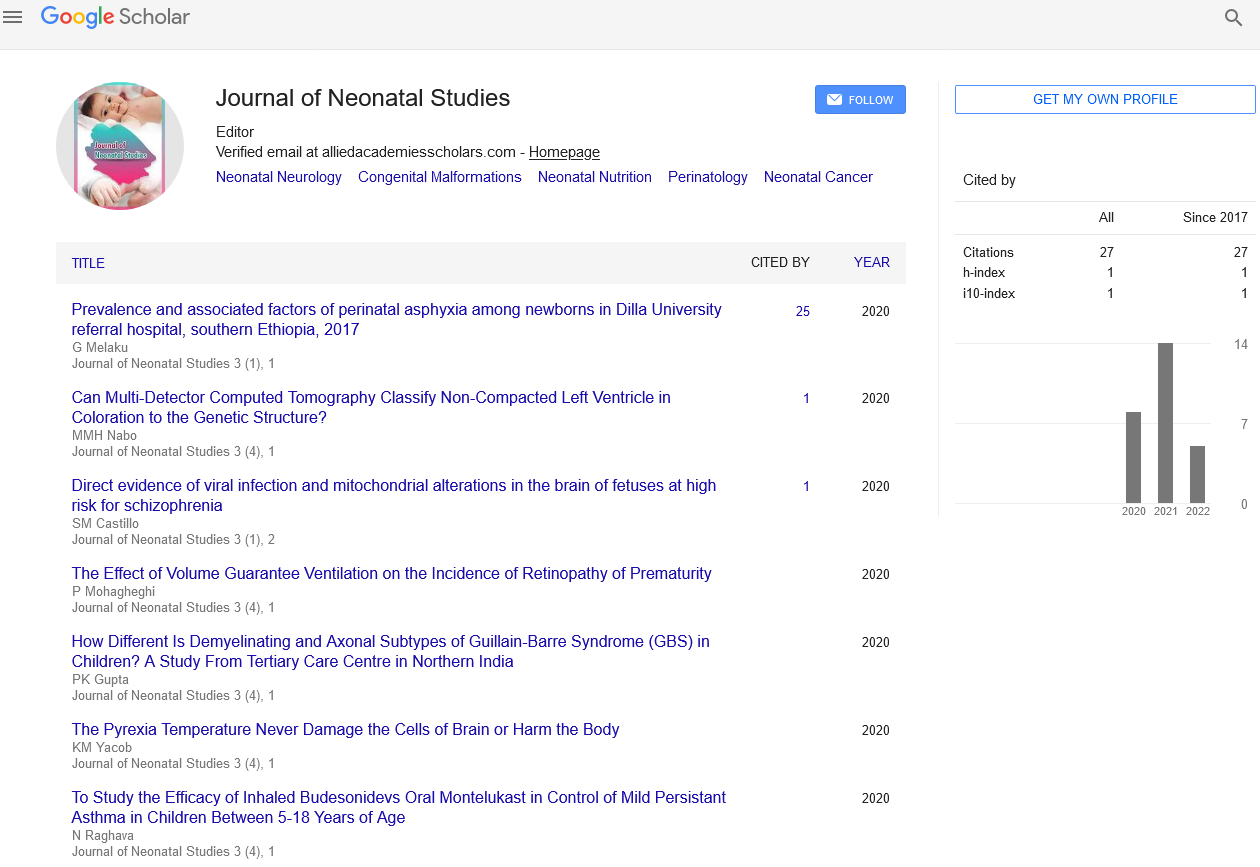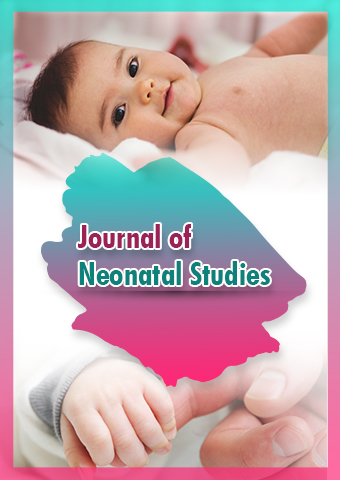Perspective - Journal of Neonatal Studies (2023) Volume 6, Issue 5
Nourishing the Future: Nutrition During the Neonatal Stage for Both Mother and Newborn
- Corresponding Author:
- Jia Fan
Department of Neonatal, Nanyang Technological University, Singapore
E-mail: jiafan23@edu.sg
Received: 18-Sep-2023, Manuscript No. JNS-23-118956; Editor assigned: 20-Sep-2023, PreQC No. JNS-23-118956 (PQ); Reviewed: 05-Oct-2023, QC No. JNS-23-118956; Revised: 13-Oct-2023, Manuscript No. JNS-23-118956 (R); Published: 23-Oct- 2023, DOI: 10.37532/jns.2023.6(5).136-137
Introduction
The neonatal stage, encompassing the first 28 days of life, is a critical period of growth and development for both the mother and her newborn. Proper nutrition during this time is vital to ensure the well-being of both, setting the foundation for a healthy future. This article explores the key aspects of nutrition for mothers and newborns during the neonatal stage.
Description
Nutrition for the mother
Prenatal nutrition continues: The nutrition journey doesn’t end with childbirth. New mothers need to maintain a balanced diet, as the postpartum period is a time of recovery and breastfeeding. Adequate nutrient intake is essential to support the healing process and ensure a robust milk supply.
Energy requirements: Lactation places extra energy demands on the mother, requiring an additional 500 calories per day. These calories should come from a variety of nutrient-dense sources, including lean proteins, whole grains, and plenty of fruits and vegetables.
Hydration: Staying well-hydrated is crucial, especially for lactating mothers. Proper hydration supports milk production and helps replenish fluids lost during childbirth. Water, herbal teas, and milk are excellent choices for hydration.
Protein: Protein intake should remain high, as it is essential for milk production and tissue repair. Lean meats, fish, legumes, and dairy products are valuable sources of protein.
Fats: Healthy fats, such as those found in avocados, nuts, and olive oil, are vital for lactating mothers. These fats provide energy and support the development of the baby’s brain and nervous system.
Vitamins and minerals: Key vitamins and minerals include calcium, iron, and vitamin D. Calcium is essential for bone health, while iron helps combat postpartum fatigue and anemia. Vitamin D facilitates the absorption of calcium and supports the newborn’s bone development.
Folic acid: Mothers should continue taking folic acid supplements to prevent birth defects in future pregnancies. This is particularly important if they plan to have more children.
Caffeine and alcohol: Limiting caffeine and avoiding alcohol is advisable, as both substances can pass into breast milk and affect the baby’s health.
Nutrition for the newborn
Breastfeeding vs. formula feeding: Breast milk is the ideal source of nutrition for neonates. It contains the perfect balance of nutrients and provides protection against infections. If breastfeeding isn’t an option, formula feeding is a safe alternative.
Colostrum: In the first few days after birth, the mother produces colostrum, a nutrient-rich substance that supports the baby’s immune system. It’s essential for the baby to receive this “liquid gold.”
Frequent feeding: Neonates have small stomachs and require frequent, small feeds. Newborns should be fed on demand, typically every 2-3 hours, to meet their energy needs.
Vitamins and minerals: Breast milk provides most of the necessary vitamins and minerals for newborns. Vitamin D supplementation may be needed, as breast milk alone may not contain enough to meet the baby’s needs.
Hydration: Neonates can become dehydrated quickly. Mothers should ensure the baby is getting enough fluids through breast milk or formula.
Nutrient-rich milk: The composition of breast milk changes over time to meet the evolving needs of the growing baby. It contains antibodies, enzymes, and growth factors that protect against infection and support development.
Formula feeding: If using formula, it’s important to choose an appropriate formula that matches the baby’s age and nutritional requirements. Follow the formula preparation guidelines carefully to ensure proper nutrient intake.
Introducing solid foods: The introduction of solid foods typically begins around 6 months of age, as recommended by healthcare providers. At this stage, the baby’s nutrient needs change, and it’s crucial to provide a balanced diet.
Shared nutrition
Skin-to-skin contact: Promoting skin-to-skin contact between the mother and newborn immediately after birth enhances bonding and initiates breastfeeding. It also helps regulate the baby’s temperature and heart rate.
Kangaroo care: Kangaroo care involves placing the newborn skin-to-skin on the mother’s chest. This practice, especially beneficial for premature babies, helps regulate body temperature and improve breastfeeding outcomes.
Support system: Having a strong support system is vital for both the mother and newborn. Family members and healthcare providers should offer guidance, encouragement, and assistance to ensure that the nutritional needs of both are met.
Conclusion
In conclusion, the neonatal stage is a critical period for establishing proper nutrition for both the mother and the newborn. Nutrient-rich diets, proper hydration, and support play a central role in ensuring the well-being and healthy development of the baby. Whether through breastfeeding or formula feeding, the focus is on providing the best possible start in life for the newest member of the family.

